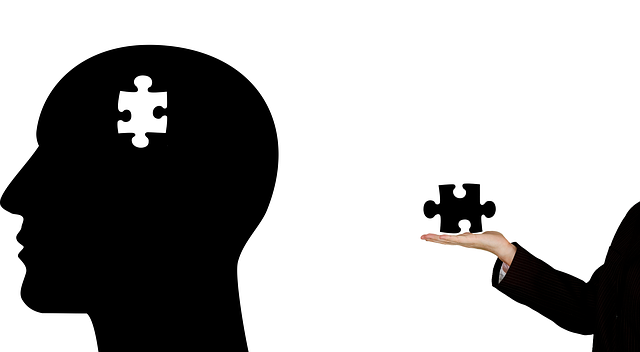Mental illness diagnoses can be confusing, but understanding conditions like depression and anxiety individually is key for effective treatment. Stigma hinders help-seeking, so using accurate terminology fosters empathy and compassionate care. Therapy for pain management, such as CBT, addresses mental and physical pain concurrently, offering coping mechanisms and enhancing quality of life. Building a supportive network with family, friends, and professionals specializing in evidence-based practices like therapy for pain management is crucial for recovery. Adopting self-care strategies like meditation, mindfulness, balanced living, setting goals, and cultivating gratitude empowers individuals to navigate their mental health journey proactively.
Mental illness diagnoses can be overwhelming, often shrouded in stigma and complexity. This guide aims to empower individuals navigating this journey by deciphering mental health labels and challenging associated stigmas. We explore various treatment options, focusing on therapy for pain management as a key strategy. Building a supportive network is crucial; we provide insights on who to reach out to and how. Additionally, self-care strategies are highlighted to foster resilience throughout the process.
- Understanding Mental Illness Diagnoses: Deciphering Labels and Stigma
- Navigating Treatment Options: Therapy for Pain Management
- Building a Supportive Network: Who to Reach Out to and How
- Self-Care Strategies: Empowering Yourself Throughout the Journey
Understanding Mental Illness Diagnoses: Deciphering Labels and Stigma

Mental illness diagnoses can often feel like a foreign language to those unfamiliar with them. Each label carries unique characteristics and symptoms, making it crucial to understand that “depression” or “anxiety” are not one-size-fits-all conditions. Deciphering these labels is the first step in navigating treatment effectively. It’s important to remember that mental health professionals use standardized criteria to make diagnoses, ensuring a systematic approach to understanding an individual’s experience.
Beyond the technical aspects, the stigma surrounding mental illness can create additional barriers to seeking help. Many individuals struggle with the idea of being labeled or categorized as “mentally ill.” However, embracing accurate terminology and challenging stereotypes can foster empathy and encourage compassion from healthcare providers. This includes recognizing that therapy for pain management—emotional regulation, compassion cultivation practices, and other evidence-based treatments—are integral parts of holistic mental health care, accessible to everyone, regardless of their perceived strength or weakness.
Navigating Treatment Options: Therapy for Pain Management

Navigating treatment options for pain management is a crucial step in the journey towards mental well-being. Many individuals struggling with mental illness also experience chronic pain, which can significantly impact their daily lives. Therapy serves as a powerful tool to address both aspects simultaneously. Cognitive Behavioral Therapy (CBT), for instance, helps individuals identify and change negative thought patterns contributing to pain, fostering inner strength development and self-care practices. This approach not only reduces the physical sensation of pain but also enhances emotional resilience.
In instances where pain is acute or intense, crisis intervention guidance can be vital. Therapists skilled in such interventions provide immediate support and strategies to manage urgent situations. By combining these therapeutic approaches, individuals can develop comprehensive coping mechanisms, effectively navigate their mental health journey, and improve overall quality of life.
Building a Supportive Network: Who to Reach Out to and How

Building a supportive network is a vital step in navigating mental illness diagnosis and treatment. The first layer should include immediate family members or close friends who can provide emotional support, listen actively, and offer practical help during tough times. These individuals are your cornerstone of care, offering reassurance and understanding as you share your experiences and work towards recovery.
Additionally, reaching out to mental health professionals is crucial for effective treatment and pain management. Therapists, counselors, or psychiatrists specializing in mental health can guide you through evidence-based practices such as therapy for pain management, emotional regulation techniques, and mindfulness meditation, which are integral components of many Mental Health Education Programs Design. These professionals can also connect you with support groups where you’ll find others facing similar challenges, fostering a sense of community and shared resilience.
Self-Care Strategies: Empowering Yourself Throughout the Journey

Navigating a mental illness diagnosis can be overwhelming, but incorporating self-care strategies empowers individuals to take charge and actively participate in their journey. Regular practices such as meditation, mindfulness exercises, and engaging in activities that bring joy foster resilience building and inner strength development. Prioritizing rest, maintaining a balanced diet, and getting enough physical activity are essential for overall well-being, complementing therapy for pain management.
Additionally, setting realistic goals, practicing gratitude, and connecting with supportive networks can significantly enhance coping mechanisms. By adopting these self-care strategies, individuals not only improve their mental health but also better equip themselves to navigate the challenges ahead. This proactive approach ensures a more positive trajectory, fostering a sense of control and empowerment throughout the process, while mitigating risks associated with mental health professionals’ assessments.
Mental illness diagnosis can be a complex journey, but with the right navigation assistance, individuals can access effective treatment options like therapy for pain management. By understanding mental health labels, building a supportive network, and adopting self-care strategies, one can navigate this process successfully. Remember, seeking help is not a sign of weakness; it’s a testament to strength and resilience. With the right tools and mindset, managing mental illness is possible, paving the way for a healthier and happier life.









